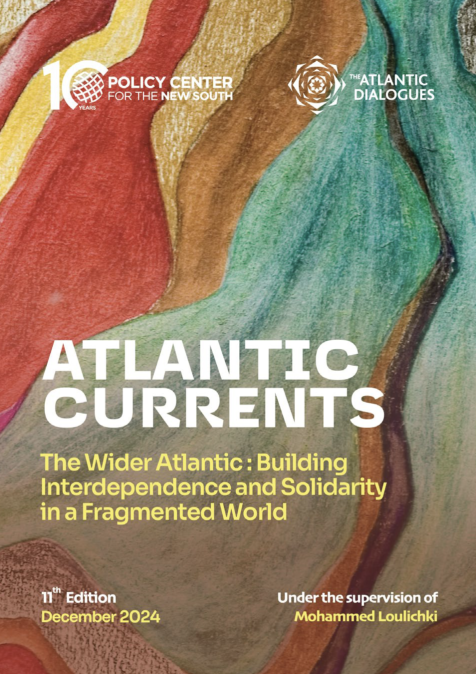Authors
Under the supervision of Mohammed Loulichki
The 11 edition of Atlantic Currents explores the evolving dynamics within the Atlantic region. As the world grapples with profound transformations and unprecedented challenges, the Atlantic Basin emerges as a strategically significant area, transcending the traditional perception of marginalization.
The 2024 edition highlights the intensifying political, economic, and societal exchanges across the region, showcasing its potential to address shared global challenges effectively and ...






